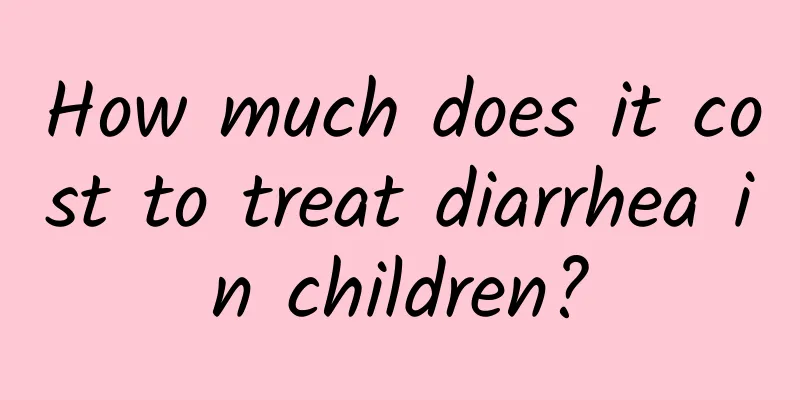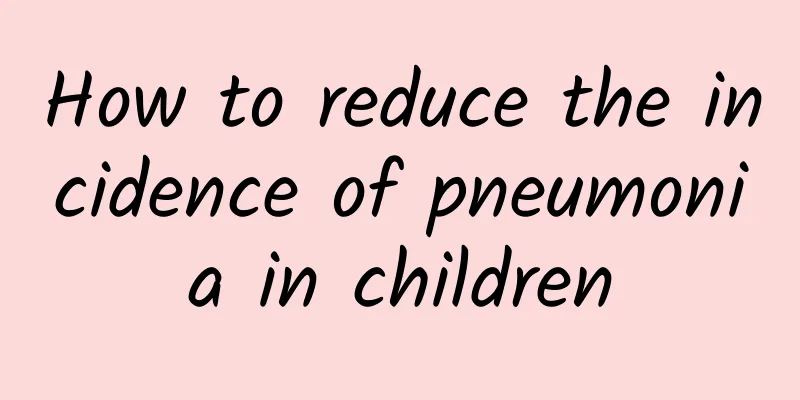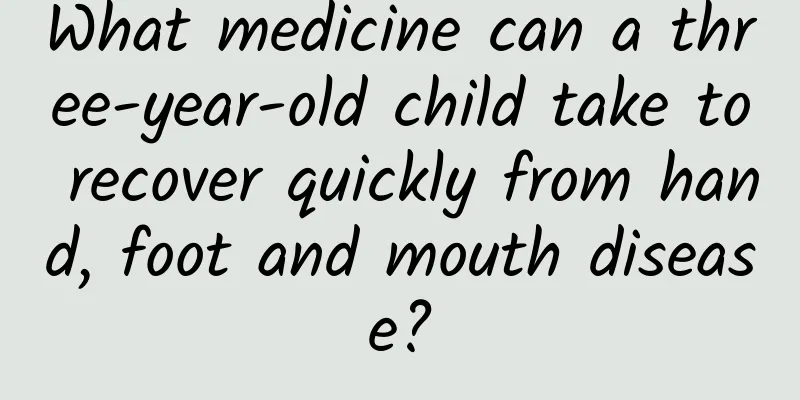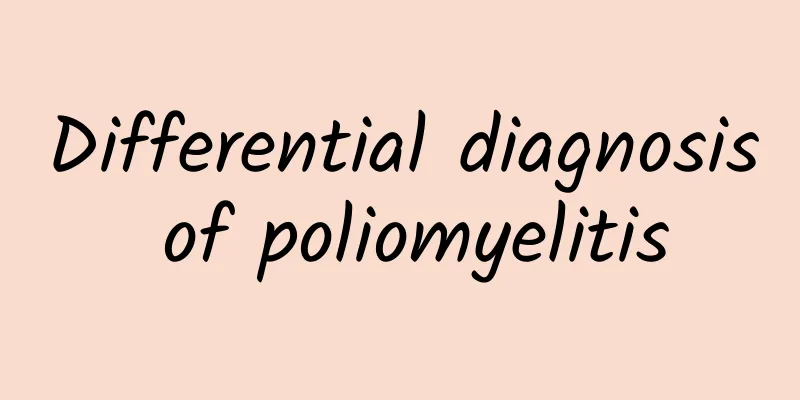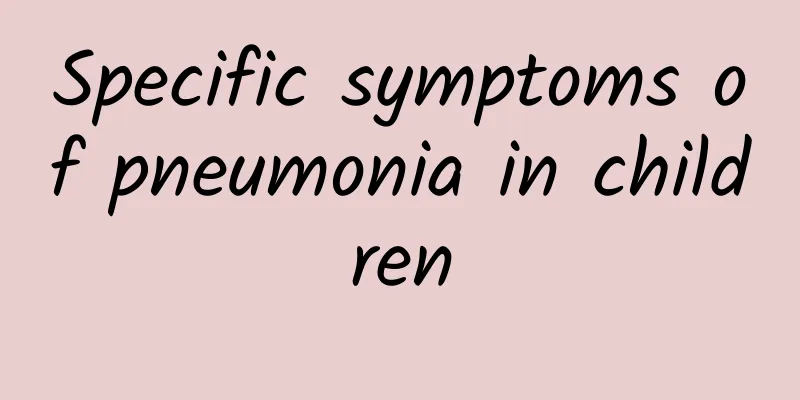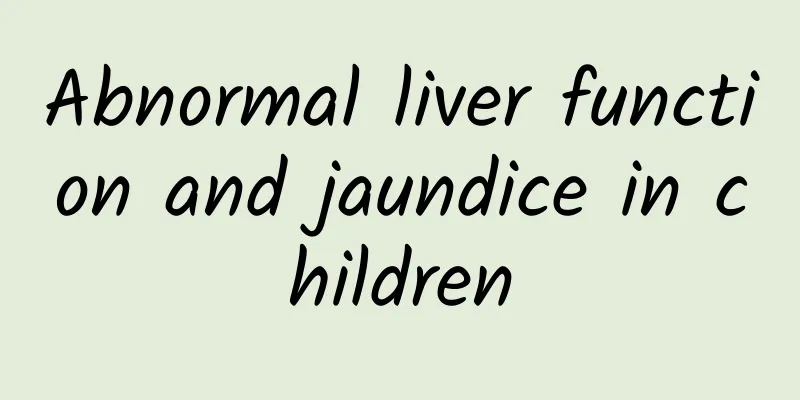Detailed explanation of the common hazards of phenylketonuria

|
Do you know the common hazards of phenylketonuria? No one is very familiar with phenylketonuria, but it has become a high-incidence disease in pediatrics. How can we treat it to help children get rid of it? Let's talk about the hazards of this disease first! What are the dangers of phenylketonuria? One is the brain maturation disorder, incomplete differentiation of the cerebral cortex, gray matter heterotopia, and reduced number of dendritic branches and synaptic spines. The second is myelin formation disorder, accompanied by glial cell proliferation and spongiform degeneration. In addition, the pigmentation of the substantia nigra and locus ceruleus is reduced. The main hazard of PKU is damage to the nervous system. Untreated children are normal at birth, but may experience vomiting, irritability, and varying degrees of developmental delay within a few months after birth. They begin to have obvious intellectual retardation 4-9 months after birth, especially language development disorders. Nearly half of them have epileptic seizures, of which about 1/3 are infantile spasms, which often appear before 18 months after birth. About 80% have abnormal EEGs, which may be manifested as high-peak rhythm disorders and focal spikes. Epileptic seizures may change in form with age. The vast majority of children have mental and behavioral abnormalities such as depression, hyperactivity, and autism tendencies. If they are not treated promptly and reasonably, they will eventually suffer from moderate to severe mental retardation. Treatment of phenylketonuria: Once the diagnosis is confirmed, active treatment should be given as soon as possible, mainly diet therapy. The younger the age of starting treatment, the better the effect. Low phenylalanine diet It is mainly suitable for patients with typical PKU and blood phenylalanine levels that are continuously higher than 1.22mmol/L (20mg/dl). Since phenylalanine is an essential amino acid for protein synthesis, complete deficiency can also lead to damage to the nervous system. Therefore, infants can be fed with special low-phenylalanine milk powder. When adding complementary foods to early childhood, starch, vegetables, fruits and other low-protein foods should be the main ingredients. The amount of phenylalanine required is about 50-70mg/(kg.d) within 2 months, about 40mg/(kg.d) for 3-6 months, about 25-30mg/(kg.d) for 2 years old, and about 10-30mg/(kg.d) for over 4 years old, so as to maintain the blood phenylalanine concentration at 0.12-0.6mmol/L (2-10mg/dl). Dietary control should be continued at least until after puberty. The goal of dietary therapy is to keep the phenylalanine level in the blood at 0.24-0.6mmol/L. Children can be fed with low-phenylalanine foods supplemented with breast milk and milk. Every 100 ml of breast milk contains about 40 mg of phenylalanine, and every 30 ml of cow's milk contains 50 mg. Special foods that limit phenylalanine intake are expensive and difficult to operate. As for when the dietary therapy that limits phenylalanine intake can be stopped, there is no consensus so far, and it is generally believed that it should be maintained for 10 years. While restricting phenylalanine intake, tyrosine supplementation can be combined or the diet can be replaced with tyrosine supplementation. |
<<: Main nursing issues for phenylketonuria
>>: Common home care for patients with phenylketonuria
Recommend
TCM Diagnosis of Diarrhea in Children
With the arrival of summer, all kinds of cold foo...
What medicine is good for children with acute laryngitis at home
What medicine should children take at home for ac...
What is the best food for malnutrition?
Malnutrition is mostly caused by improper diet. W...
What should children with eczema not eat? 4 types of food that children with eczema should not eat
If you want your child with pediatric eczema to r...
How to care for a one-year-old baby with a cold, cough and phlegm
Colds are mostly caused by inflammatory stimulati...
How can pregnant women prevent neonatal jaundice? Four points to prevent neonatal jaundice
Many babies may have physiological jaundice right...
Is the cure rate for breast milk diarrhea high?
Is the cure rate of breast milk diarrhea high? Br...
Can Kawasaki disease be cured?
Many children often suffer from some diseases due...
Polio causes muscle atrophy
Polio is very harmful. Many children will show sy...
How old is the hand, foot and mouth disease vaccine? How many shots are needed?
Hand, foot and mouth disease vaccine is an import...
What are the treatments for jaundice?
Jaundice is a common symptom and sign. It occurs ...
What should parents do when their children have seizures?
Children's convulsions are a common emergency...
How to prevent acute laryngitis in children in daily life
How to prevent acute laryngitis in children in li...
What are the dangers of tonsillitis in children? Can removing the tonsils solve the problem once and for all?
Tonsils are an immune organ of the human body and...
Common causes of diarrhea in children
Summer is the peak season for pediatric diarrhea,...
